Team Biographies
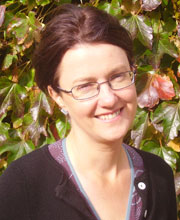
Principal Investigator: Professor Carol Tully (Professor of German) School of Modern Languages, Bangor University
Carol Tully is Professor of German at Bangor university. She has established an international reputation as a scholar in the area of European cultural exchange in the nineteenth century with a primary focus on Germany and Spain. She has published a number of books, scholarly editions, translations and journal articles, including Johann Nikolas Böhl von Faber: a German Romantic in Spain (1775–1836) (2007) and La devoción de la cruz, Pedro Calderón de la Barca / Die Andacht zum Kreuze, August Wilhelm Schlegel (2012). She was head of the School of Modern Languages at Bangor from 2005 to 2011 and also Deputy Head of the College of Arts and Humanities. She currently holds the post of Pro-Vice Chancellor (Students).
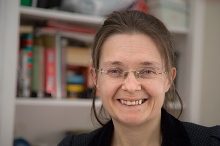
Co-investigator: Dr Heather Williams (Research Fellow), University of Wales Advanced Celtic Studies, Aberystwyth
Heather Williams is a comparatist working in French Studies and Celtic Studies. She joined the University of Wales Centre for Advanced Welsh and Celtic Studies in 2007 as Pilcher Senior Fellow. Her research interests include travel writing, especially in relation to postcolonialism and translation studies; travellers to Brittany and to Wales from Romanticism onwards. She is also interested in translation and cultural exchange between Welsh, English, French and Breton. She has worked on translation between French and Breton, especially in the 1830s and the 1960s and 1970s, and between Welsh and English, particularly in the 1790s. Other interests include ecocriticism, especially in conjunction with postcolonial theory, and as it relates to Brittany and Wales from Romanticism to the present day, and the representation of Brittany in French-language literature both from Brittany and from the mainstream French tradition. She also works on postcolonial literary criticism as it relates to Celtic countries or regions; her Postcolonial Brittany: Literature Between Languages (2007) investigates the space between the two languages of modern-day Brittany through a series of close readings of literary texts that represent Brittany or Bretonness in the French language. More broadly she is interested in poetry. Her Mallarmé’s Ideas in Language (2004) is a series of close-readings of the nineteenth-century French poet Stéphane Mallarmé. See CAWCS for a fuller research profile, and publications list.

Co-investigator: Dr Kathryn Jones (Lecturer), Swansea University
Dr Kathryn Jones is Associate Professor of French at Swansea University, where she teaches a wide range of modules on the contemporary history and culture of France and Francophonie, and French language modules through the medium of Welsh. She has supervised several PhD theses on postcolonial francophone literature. Dr Jones is also a co-founder of MEICAM at Swansea University (Research group for the study of Modern European Ideologies, Conflict and Memory). Her research focuses on representations of conflict, memory and travel in contemporary French and German literature and cultural history, and also encompasses gender studies and transnational studies. Her publications include the monograph Journeys of Remembrance: Memories of the Second World War in French and German Literature, 1960–1980 (Legenda, 2007), and the collected volume Constructions of Conflict: Transmitting Memories of the Past in European Historiography, Literature and Culture (with Katharina Hall, Lang, 2011). She has published numerous articles on the 17 October 1961 Algerian war protest, and articles on travel narratives by François Maspero, Leïla Sebbar, Caroline Riegel, Anne Brunswic, Jorge Semprun and Charlotte Delbo. She has also edited special issues of Journal of Contemporary European Studies on ‘Memories of Conflict in “Eastern Europe”’ (April 2009, with Nicola Cooper) and Nottingham French Studies on ‘French and Francophone Women and Leisure’ (March 2013, with Nathalie Morello). In addition to the ‘European Travellers to Wales’ collaborative project, she is currently working on a research project entitled Gendered Journeys which examines French-language travel literature by women writers in the twentieth and twenty-first centuries.
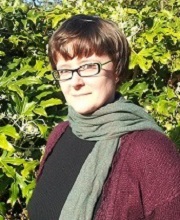
Research Officer: Dr Rita Singer, University of Wales Advanced Celtic Studies, Aberystwyth
Rita Singer received her MA in British Studies and German as a Foreign Language from Leipzig University (2003–7). In her MA thesis (2007) she analysed the Harry Potter books as a contemporary, secular example of a Christian allegory, the psychomachia, in young adult fiction. In her PhD thesis ‘Re-inventing the Gwerin: Anglo-Welsh Identities in Fiction and Non-Fiction, 1847–1914’ (awarded 2013) she traces how writers from Wales infuse the concept of the ‘gwerin’ with middle-class English values. The project was funded by the German National Academic Foundation (2009–12). She has contributed a chapter to the collection Heroism in the Harry Potter Series (2011), in which she traces the representation of Charity as a remedial virtue in Harry Potter and the Deathly Hallows (2007). She has also written articles on the narration of cultural and social ‘inbetweenness’ in Richard Doddridge Blackmore’s The Maid of Sker (1872) and Amy Dillwyn’s social novel The Rebecca Rioter (1880). She is editor of the collection Britische Orientbilder: Auf Spurensuche zwischen Oxford und Oxiana (2013), which is the result of a student project conducted over the course of a semester in 2013. She has taught seminars on the historical novel in Wales, Welsh cinema and television, as well as surveys of British literature and culture. Her research interests include Welsh Writing in English, private Britishness in letters and diaries (with a particular focus on the nineteenth and early twentieth century), film studies in relation to British cinema, and spatial imaginations and representations of rival national identities.
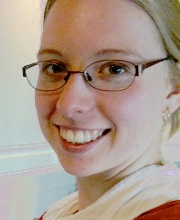
PhD studentship ‘Literary Conceptions of Wales in Europe: 1750–2010’: Christina Les, BA, MA, Bangor University
After studying French and German at the University of Nottingham, Christina moved to North Wales six years ago to teach modern languages. In 2013 she completed an MA in Translation Studies at Bangor and joined the ‘European Travellers to Wales’ project, researching literary perceptions of Wales in European writing since 1750. She focuses on twentieth-century and contemporary fiction set in Wales, and her material includes popular works from Germany, Hungary and the Netherlands.
Some unexpected connections with Europe have emerged, such as a long-standing cultural relationship between Wales and Hungary, but in general these texts seem more concerned with the Welsh landscape than with Welsh people, language or culture. Wales is depicted as uncharted territory on the very edge of Europe in which almost anything can happen. It is sought out as an empty space for self-reflection, rather than for engagement with Welsh culture or heritage. Going forward, Christina uses theories of space, place and travel – including psychogeography and Kenneth White’s ‘geopoetics’ – to frame her findings.
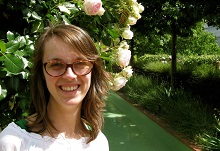
PhD studentship ‘Wales through European Eyes’: Anna-Lou Dijkstra, BA, MA, Swansea University
After having completed her BA in German Studies at Utrecht University in the Netherlands, Anna-Lou Dijkstra received her MA in Translation Studies from the same institution in 2013. Her thesis looked into the complex relationship between translation and style, and resulted in a publication in the Dutch journal for Translation Studies Filter.
She subsequently moved to Wales, where she joined the ‘European Travellers to Wales’ project as a PhD student. In her thesis, Anna-Lou investigates German, French and Dutch travel guidebooks to Wales, published between 1850 and 2010. She explores the textual conceptualisation of Wales as a distinctive travel destination. The creation of imagined geographical and cultural borders enclosing Wales whilst separating the country from England is a focal point in her work. Following her academic background, she has also published an article in the journal Translation Studies on translated guidebooks which examines how representations of Wales shift in translation.
In addition to writing her PhD, Anna-Lou has worked as a German tutor at Aberystwyth University. She recently moved to Cardiff, where she teaches German to graduates, postgraduates and adult learners.
Advisory Board
We would like to thank the members of our Advisory Board for their contributions to the project:
Dr Mary-Ann Constantine, Prof Robert Evans, Prof Charles Forsdick, Michael Freeman, Prof Katie Gramich, Prof Dafydd Johnston, Dr Alison Martin.